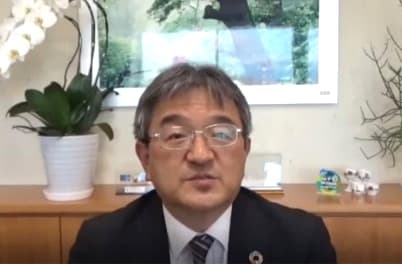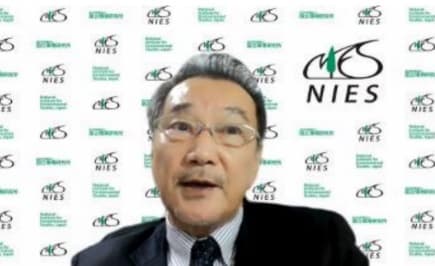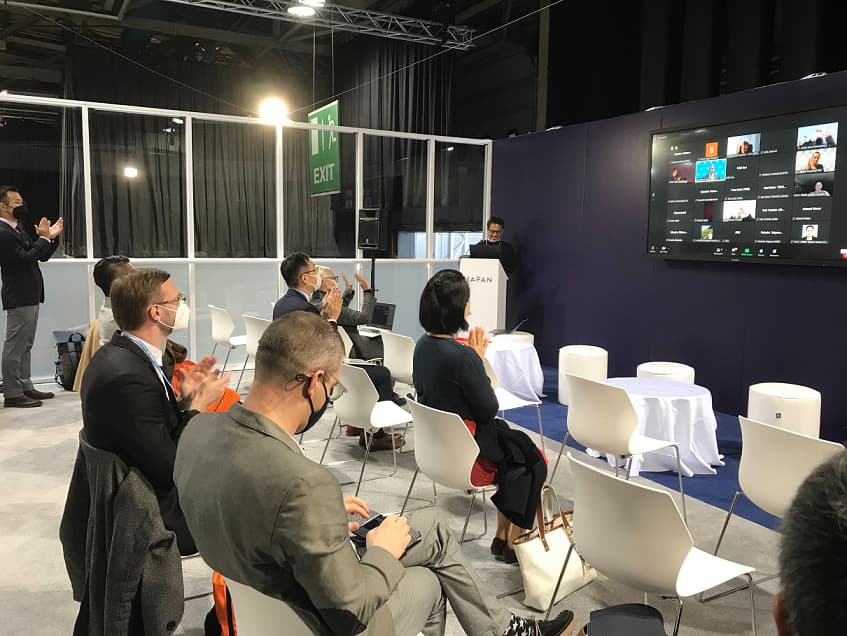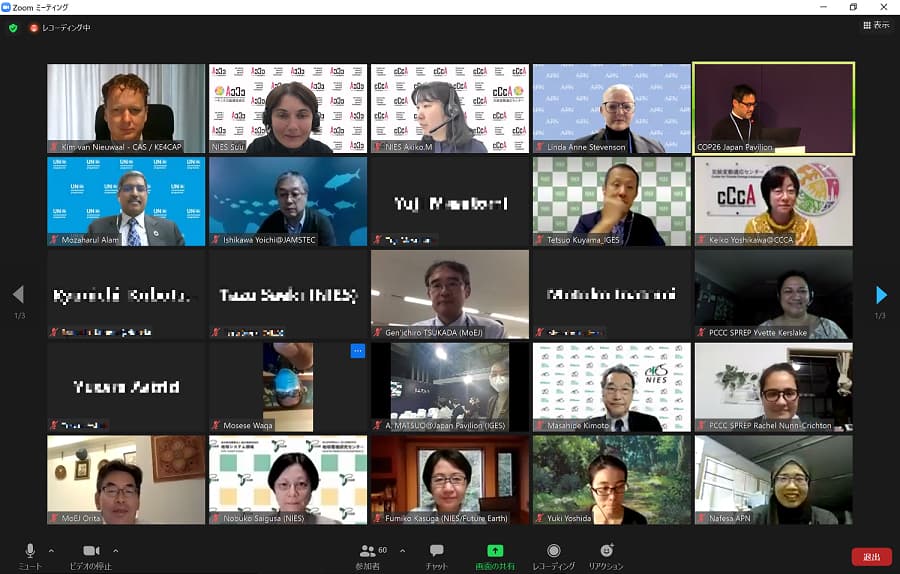2021.11.2 TUE
10:30 - 12:00
2021.11.2
Development and utilization of information platform towards climate resilient societies in Asia-Pacific Region
National Institute for Environmental Studies (NIES)
Co-organizer
Ministry of the Environment Japan, Institute for Global Environmental Strategies
Seminar abstract
【Agenda of the Event】
Objective:
Effective interaction among climate science, policy and action is key to building a climate-resilient society. As mentioned in the Paris Agreement, climate-related capacity development for developing countries should be accelerated to deal with the many challenges brought about by climate change. Considering these situations, the Asia-Pacific Climate Change Adaptation Information Platform (AP-PLAT) was launched aiming to provide an enabling environment for climate-risk informed decision-making and practical adaptation action through collaboration with partners including international organizations, universities, and research institutes.
This session will focus on sharing good practices and challenges in information platforms on how science can be used to inform evidence-based strategic planning and implementation of adaptation action for a climate-resilient Asia-Pacific region. This session will also explore the potential of partnerships between information platforms, organizations, institutes, and initiatives in accelerating adaptation in Asia-Pacific countries.
Agenda:
10:30 - 10:35 Opening remarks (Video message)
Mr. Yutaka Shoda, Vice-Minister for Global Environmental Affairs, Ministry of the Environment, Japan
10:35 - 11:20 Activities for climate resilient societies in the Asia-Pacific regions
Each speaker will introduce their activities including background, approaches, outcomes, lessons, needs and challenges for developing climate-resilient societies especially in the Asia-Pacific region (5 mins, 5 slides). Participants will share their views on how to deliver scientific information to communities through information platforms.
- Introduction of Asia-Pacific Climate Change Adaptation Information Platform (AP-PLAT)
Dr. Yuji Masutomi, Section head, Center for Climate Change Adaptation, National Institute for Environmental Studies (NIES), Japan
- Capacity development through AP-PLAT
Dr. Tetsuo Kuyama, Director, Bangkok Regional Center, Institute for Global Environmental Strategies (IGES), Japan
- Introduction of Data Integration and Analysis System (DIAS)
Dr. Youichi Ishikawa, Director, Center for Earth Information Science and Technology (CEIST), Japan Agency for Marine-Earth Science and Technology (JAMSTEC)
- Activities of Pacific Climate Change Centre (PCCC) and challenges in Pacific countries
Ms. Yvette Kerslake, Technical Advisor, Science to Services, Pacific Climate Change Centre (PCCC)
- Outcomes of Knowledge Exchange between Climate Change Adaptation Platforms (KE4CAP)
Dr. Kim van Nieuwaal, Strategic advisor, Climate Adaptation Services
- APN’s role in bridging science-stakeholder communities for a climate-resilient Asia-Pacific region
Dr. Linda Anne Stevenson, Head of Knowledge Management and Scientific Affairs, Asia-Pacific Network for Global Change Research (APN)
- Activities of APAN and UNEP and outcomes of 7th APAN forum
Dr. Mozaharul Alam, Regional Coordinator, Asia and the Pacific Office, United Nations Environment Programme (UNEP)
11:20 - 11:55 Panel discussion with audience
Moderator: Dr. Linda Anne Stevenson, APN
By summarizing the presentations from each panelist, we will first share where we have reached today towards climate-resilient societies. To maximize the potential of information platforms, we will then discuss what is still lacking in information platforms for bridging science and stakeholder communities, the next steps needed, and explore ways to achieve our final goal of enabling climate-resilience societies. More concrete key questions that
are to be addressed are:
1. What gaps are there between stakeholders and science communities? How can information platforms fill these gaps?
2. What are the most important features of information platforms that link science with stakeholder communities?
3. What kinds of collaboration and partnerships are needed among information platforms, organizations, institutes and universities that can accelerate the realization of climate-resilient societies?
The panelists will address one of the above questions. In addition, we will receive several questions and suggestions from the floor in person and audience on chat in Zoom.
11:55 - 12:00 Closing remarks
Dr. Masahide Kimoto, President, National Institute for Environmental Studies (NIES), Japan
Speakers
- • Dr. Yuji Masutomi Center for Climate Change Adaptation, National Institute for Environmental Studies Section Head
• Dr. Linda Anne Stevenson Asia-Pacific Network for Global Change Research Head of Knowledge Management and Scientific Affairs
▼Online speakers
• Mr. Yutaka Shoda Ministry of the Environment, Japan Vice-Minister for Global Environmental Affairs
• Dr. Masahide Kimoto National Institute for Environmental Studies (NIES) President
• Dr. Tetsuo Kuyama Bangkok Regional Center, Institute for Global Environmental Strategies (IGES) Director
• Dr. Youichi Ishikawa Center for Earth Information Science and Technology (CEIST), Japan Agency for Marine-Earth Science and Technology (JAMSTEC) Director
• Ms. Yvette Kerslake Pacific Climate Change Centre (PCCC) Technical Advisor, Science to Services
• Dr. Kim van Nieuwaal Climate Adaptation Services Strategic Advisor
• Dr. Mozaharul Alam Asia and the Pacific Office, United Nations Environment Programme (UNEP) Regional Coordinator
Session Summary
・The seminar was opened by Mr. Shoda (MOEJ) who stressed the commitment of the Japanese government to adaptation and mentioned AP-PLAT as a part of Japan's efforts to support adaptation both domestically and internationally.
・Each presenter outlined the background and recent outcomes of their respective activities, including an introduction of AP-PLAT and its renewed website (Dr. Masutomi, NIES), new E-learning materials developed by IGES under MOEJ’s commissioned work for AP-PLAT (Dr. Kuyama, IGES), Data Integration and Analysis System (DIAS) project (Dr. Ishikawa, JAMSTEC), PCCC initiatives (Ms. Kerslake, PCCC), outcomes of the KE4CAP project (Dr. Nieuwaal, CAS), APN activities in bridging science-stakeholder communities (Dr. Stevenson, APN), and outcomes of the 7th Asia-Pacific Climate Change Adaptation Forum, organized by the Asia Pacific Adaptation Network in March 2021 (Dr. Alam, UNEP).
・In the panel discussion moderated by Dr. Stevenson, panelists discussed what gaps exist between science and stakeholder communities, how information platforms can help bridge these gaps, and what kind of partnerships between platforms and other organizations are needed to achieve the goal of enabling climate-resilient societies.
・Some of the highlighted issues were 1) information unavailability, especially in developing countries, which is an obstacle for science-based planning and implementation; 2) information discrepancy between scientific information providers and users on the ground.
・Panelists also shared their perspectives on future opportunities, such as co-design and co-working processes that can help translate scientific data into specific local solutions. The role of independent and trustworthy knowledge brokers was also emphasized. Understanding how climate adaptation platforms and the people behind them (the human capital) operate can speed up our adaptation efforts.
・The seminar was concluded by Dr. Kimoto (NIES), who expressed his hope that the session would trigger further action towards better adaptation around the world.
・The seminar was a hybrid event. Altogether about 100 people attended via Zoom, YouTube live streaming, or in-person.
Message and Results
・To resolve the issues discussed in this seminar, it is necessary to further strengthen communication and mutual understanding between researchers who provide scientific data and findings, and local users of this scientific information, including policy-makers.
・AP-PLAT and other regional climate change adaptation information platforms need to address and support such efforts.




2021.11.2 TUETimetable
13:00 - 14:30
2021.11.2
Ministry of the Environment, Government of Japan
15:00 - 16:30
2021.11.2
Ministry of the Environment of Japan
